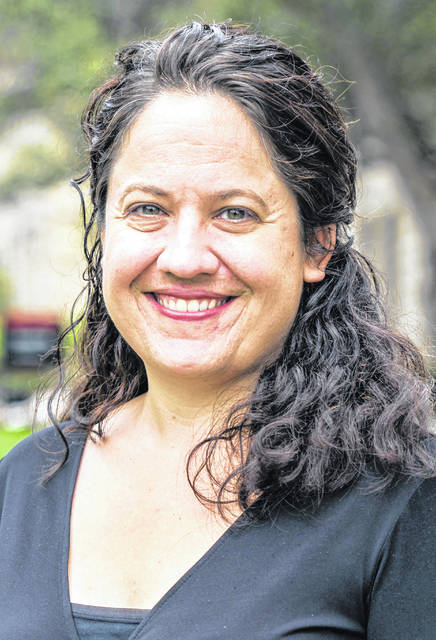
An Ohio Wesleyan University professor explained how pandemics in the past helped shape human history and what that means during the novel coronavirus crisis as part of an ongoing free course for students and the public.
“Four concrete examples of pandemic disease” of the past were presented during Monday’s course by Ellen Arnold, a history professor.
The first was the bubonic plague that began during the rule of Byzantine emperor Justinian in 527-565 AD. In reconquering the former Roman empire, troop migrations inadvertently spread the disease from 541-750 AD in wave after wave in Eurasia and northern Africa. During this time, there was also a consolidation of European tribes, and the rise of Muhammad and Islam.
“As the plague hits, people throughout the Mediterranean world and the Middle East are turning to political leaders, academic medical experts, and increasingly imported communities of faith, to find answers and support in a time of crisis,” Arnold said.
She quoted an Italian who wrote in 565, “You might see the world brought back to its ancient silence.” Arnold said she experiences this voice from the past today, hearing the silence outside her home and on campus during the COVID-19 outbreak.
In the 14th century from 1347-1353, the bubonic plague returns, spread by rats from the invasions of the Mongol empire and trade routes such as the Silk Road. Better known as the Black Death, it spread from China to England. Arnold said its inevitable spread in Italy is similar to the way the novel coronavirus impacted that nation this year.
Arnold quoted a distraught scholar named Petrarch in 1350, “We should make new friends — but how, when the human race is almost wiped out; and why, when it looks to me as if the end of the world is at hand?” She said the pandemic, which decimated populations, was preceded by three years of deadly famine.
“Everyone would have known someone who died,” Arnold said. “Emergent diseases can transform everything.”
She said cholera was a disease “directly related to the rising population of England” in the 1800s, and it struck in waves all over the world. It was during this pandemic that medical knowledge was radically transformed. It was determined, through mapping the outbreak in London, that cholera was a water-borne pathogen, resulting in improvements to urban sanitation and water infrastructure. The germ theory toppled 2,000 years of ideas such as bodily humors, constitution and miasma.
Arnold’s last example was HIV/AIDS, which originated in the 1980s and is endemic. She pointed out that AIDS-related deaths have been reduced by more than 56% since the peak in 2004; AIDS-related mortality has declined by 33% since 2010; the number of people newly infected with HIV has steadily dropped since 2000, and that trend should continue.
“It shows us that pouring money and political will into research can yield results, yet those results can take a long time to become accessible and affordable. It reminds us that transparency in dealing with uncertainty is important.”
The public asked about other pandemics. Arnold said the Spanish Flu of 1918 was little remembered, and wasn’t mentioned in textbooks until recently. She said this disease was obscured by World War I. In this lost generation, human disaster and disease wiped out a wide swath of the world’s youth, Arnold said.
Other pandemics, cowpox and smallpox, wiped out indigenous populations due to colonialism of the Americas, and had a reciprocal disease loop with the Old World. However, it also led to the development of vaccines.
She concluded that disease history is written by demographers, epidemiologists and historians, and that there is an old problem we haven’t solved: stigma and bias. All too often, people suffering from a disease are shunned and demonized, persecuted and banished. Others think that because they’re good, they won’t be affected.
“The history of health and moral failings have long been linked. Communities both hunker down and lash out, and we’re seeing this with COVID.”
She said history is the study of change over time in human societies. Arnold said how we as a society make decisions during times of crisis inevitably changes the world. She hoped that in the next century, a historian might look back on our times and say we made good decisions that kept our society resilient.
Arnold’s lecture was part of a 10-week course called “We’re in This Together: An Interdisciplinary Exploration of the Coronavirus Pandemic.” For more information, visit www.owu.edu/COVIDclass.


